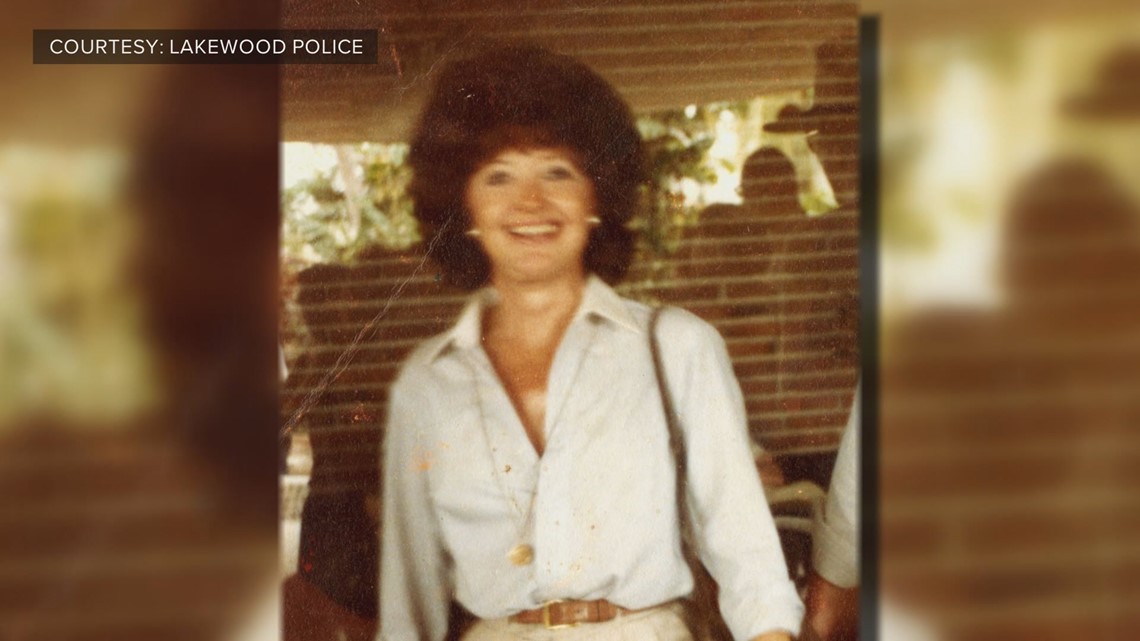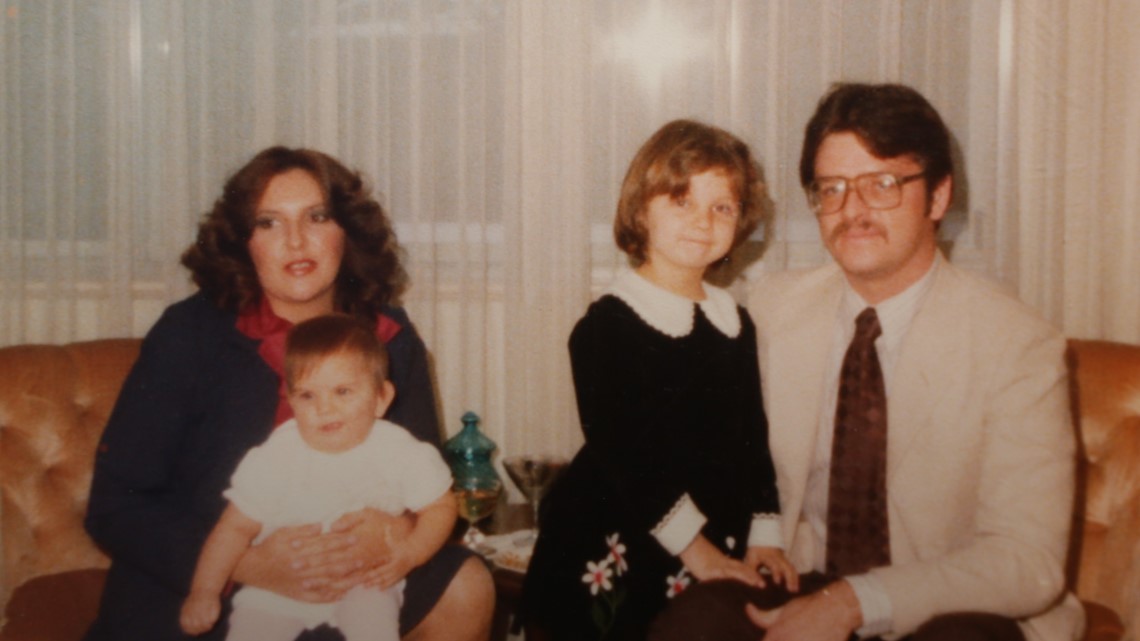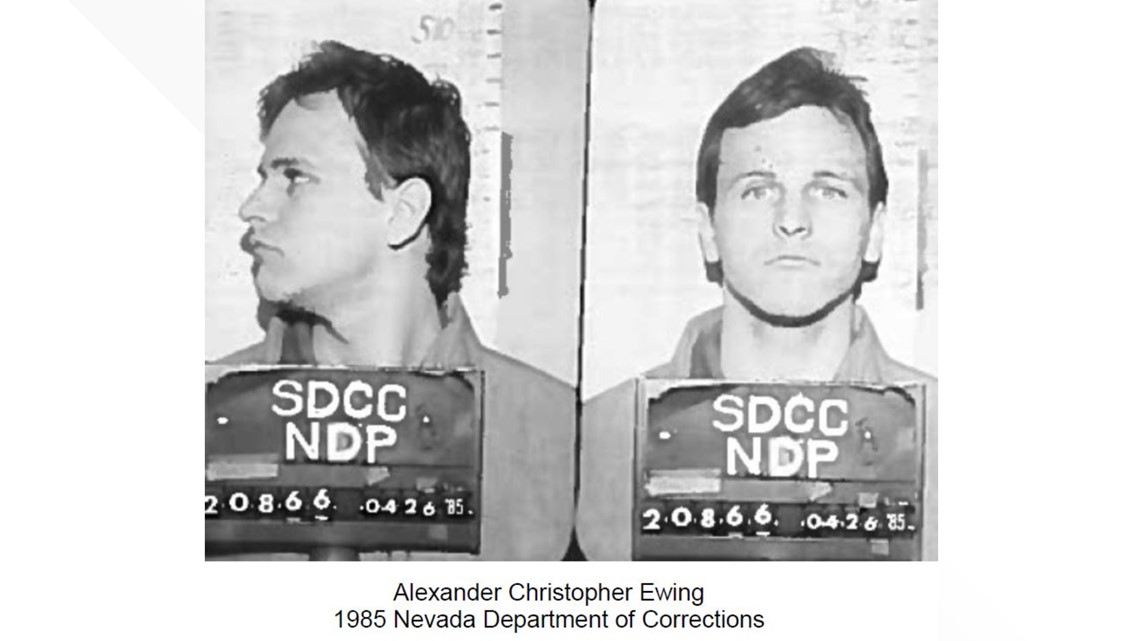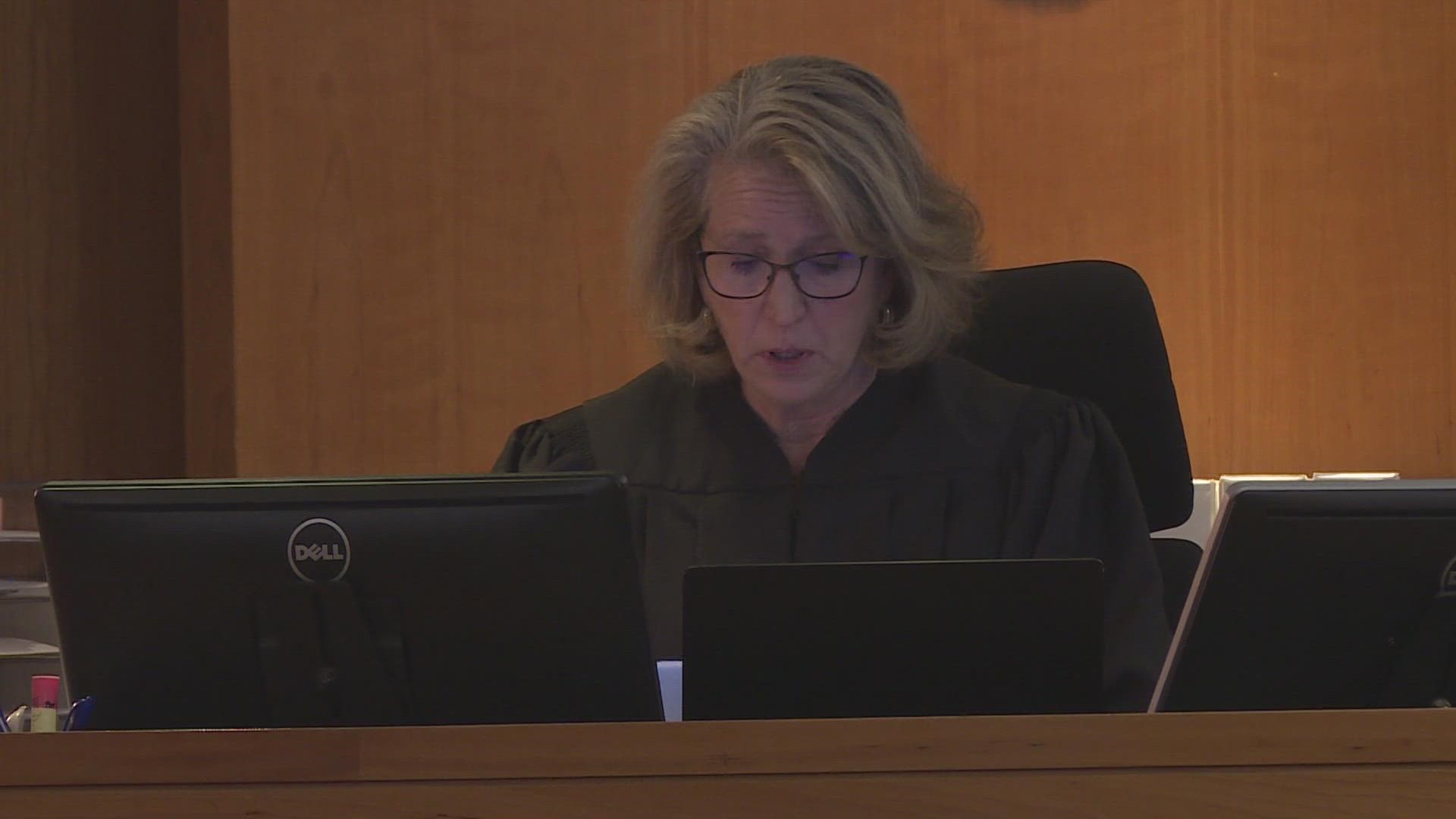JEFFERSON COUNTY, Colo. — A jury on Thursday convicted Alex Ewing on three counts in the 1984 murder of an interior designer who was beaten to death with a hammer and sexually assaulted.
A nine-woman, three-man jury found Ewing guilty of:
- First-degree murder after deliberation
- First-degree murder -- felony murder involving a robbery
- First-degree murder -- felony murder involving a sexual assault or attempted sexual assault
The case centered on DNA extracted from semen left on and around Patricia Smith’s body. The 50-year-old Smith was surprised in the Lakewood townhome she shared with her daughter and grandchildren early the afternoon of Jan. 10, 1984.
RELATED: Case against man accused of '84 rape, murder in Lakewood goes to jury after closing arguments
Sentencing for Ewing, 61, is set for 10 a.m. April 12.
He faces life behind bars with the possibility of parole after 20 years – a term laid out in sentencing laws on the books when Smith was murdered on Jan. 10, 1984.
Bennett murders
The conviction comes about eight months after an Arapahoe County jury found Ewing guilty of the murders of Bruce and Debra Bennett and their 7-year-old daughter, Melissa. They were all bludgeoned to death, and although the murder weapon was never found, authorities believe it was a claw hammer.
The judge in that case sentenced Ewing to three consecutive life terms, all but guaranteeing he will die behind bars.
Patricia Smith murder


The heart of the prosecution’s case in Smith’s murder was simple – the semen recovered from Smith’s body, from the carpet underneath it, and from the blanket that covered her proved that Ewing sexually assaulted and killed her.
Defense attorneys raised numerous questions about the handling of evidence over the years of the investigation – and about DNA that wasn’t found on evidence.
The investigation of Smith’s death began in an era when the idea of using DNA to identify assailants was the stuff of academic papers and theory.
Today, the technology allows for the discovery of DNA in just a few human cells.
That technology, for example, can allow for the discovery of DNA on an item that was merely touched by a person’s hand.
Defense attorneys elicited extensive testimony about the fact that Ewing’s “touch” DNA was not on the hammer used to kill Smith, on her boots and clothing, or on her purse and wallet.
Investigators believe the killer touched all of those items.
Prosecutors countered by drawing out testimony that a person wearing gloves may not leave DNA behind simply by touching something.


District Judge Tamara Russell also ruled that the prosecution could tell the jury about the Bennett killings for the purposes of identity, common plan or modus operandi.
The jury was not told that Ewing was convicted of those killings, but heard testimony that his DNA was extracted from semen on carpeting under the body of Melissa Bennett, who was raped.
The trial featured testimony from 24 witnesses over five days.
The jury got the case around 3:20 Wednesday afternoon.


Just after 10 a.m. Thursday, a sheriff's deputy and then defense attorneys arrived at the courtroom after getting word that the jury had reached a verdict. Chery Lettin, Smith's daughter, arrived at the courtroom about 25 minutes later, joining other family members and close friends.
The jury entered the courtroom at 10:48, and in a matter of minutes, Judge Russell had the jury forms in hand and began reading.
"We, the jury, find the defendant, Alex Christopher Ewing, guilty of murder in the first degree after deliberation," Russell said.
The verdict was the same in the other two counts, and the hearing was effectively over in about three minutes.
"There was a lot of relief today in the courtroom," said Reese, who was 4 years old when his grandmother was killed. "Thirty-eight years we’ve been waiting for this to happen, so relief is the big feeling that was going on. Light in the stomach, nervous at first, but I think the defense had a long uphill battle, and the prosecution did a fantastic job, so we’re really happy."
District Attorney Alexis King, flanked by the prosecutors who handled the case, Katharine Decker and Jennifer Rhoads, expressed thanks to the jurors, who sat through sometimes difficult testimony and had to consider evidence that included graphic crime scene photographs.
"It’s a long time to wait for justice, and our hearts are really with Patricia Smith’s family today," King said. "We are really grateful for the jury’s service. This is a lot to ask of jurors to sit through a case like this."
Defense attorneys Stephen McCrohan and Katherine Spengler left court without commenting.
Previous conviction
Ewing was in Colorado, according to testimony, beginning in 1983, when he obtained a driver license.
According to court documents obtained by 9Wants to Know, Ewing was arrested in Kingman, Arizona, 11 days after the Bennett murders, accused of breaking into a home there and beating a man with a slab of granite. Because of overcrowded conditions at the jail in Kingman, Ewing was held for a time at a detention center in Utah.
Ewing told Arizona authorities he hitchhiked out of Colorado, riding with a trucker.
On Aug. 9, 1984, Ewing was being transported from Utah back to Kingman for a court hearing when he ran off after jail deputies stopped the transport van in Henderson, Nevada, to give him and other inmates a bathroom break.
That night, Ewing broke into a home in Henderson and attacked a couple with a weathered ax handle, savagely beating them. He was arrested two days later, convicted of multiple charges, and was still behind bars for that assault when Nevada authorities collected his DNA in the spring of 2018 and uploaded it into the FBI’s national database.


There, it was linked to the Bennett murders – and days later to Smith’s killing.
After an extradition fight, Ewing was flown to Colorado in February 2020 as the two cases began making their way through the courts.
Contact 9Wants to Know investigator Kevin Vaughan with tips about this or any story: kevin.vaughan@9news.com or 303-871-1862.
SUGGESTED VIDEOS: Bennett family murders

